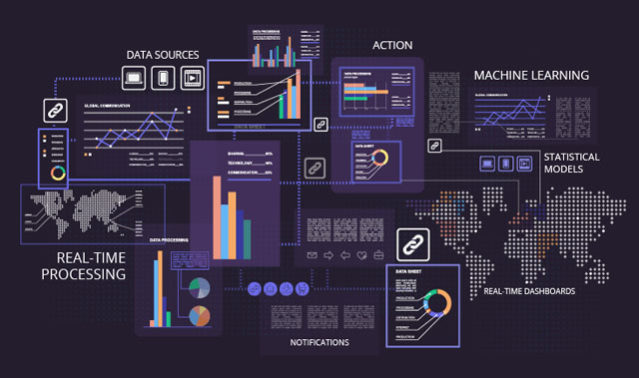COURSE INTRODUCTION
1
Logistics, materials, and course expectations
2
Agile and integrated set of tools and best practices
3
References and resources
INTRODUCTION TO DATA ANALYSIS AND DATA ANALYTICS
1
Definition and history
2
Current technology, the growing availability of data, and increasing challenges
3
Applications for gaining competitive advantages
RETHINKING THE VALUE AND USAGE OF DATA
1
The impact of vast volumes of available data especially for decision making
2
Data difficulties and limitations: ROI vs. effort/expense, incomplete and inconclusive data
3
Dealing with data uncertainty
4
Getting real value out of your data: The data continuum
5
Effective and responsible data ownership
6
Advantages and disadvantages of qualitative and quantitative data types
7
Solutions and best practices to transform the way your organization accesses and uses data
8
Organizing the entire organization’s data for maximum efficiency using easily available tools
9
Taking advantage of the expertise of the entire organization
INTRODUCTION TO DATA MINING AND DATA WAREHOUSING
1
Data Mining concepts and application
2
Application benefits of data warehousing
DATA DISTRIBUTION AND VARIANCE
1
Decision making under uncertainty
2
Probability
3
Data distribution
4
Variance
5
Standard deviation
INFORMATION NEEDS
1
Operational and executive information classes?
2
Key functional transactions and documents
3
Map information needs to underlying data
4
Executive information needs and the balanced scorecard
5
Role of the business analyst and data analyst
6
How to use simple pivot tables in Excel or Google Sheets to analyze and present your data
7
Tracking and managing business process performance
8
Learning from data
DATA EXPLORATION CONCEPTS AND METHODS
1
Basic concepts
2
Descriptive measures of a sample
3
Histograms
4
Statistical hypothesis and inference
5
Dependence and correlation
6
Moving beyond data and decision uncertainty – managing risk
FORECASTING
1
Forecasting methods and models
2
Time series analysis
3
Linear regression
4
Establishing trends and business cycles (i.e., seasonality)
5
Selecting independent variables for predictive models including regression techniques
REVIEW
BEST PRACTICES AND NEXT STEPS
1
Data analysis and transformation
2
Best practices revisited
3
Next steps options
COURSE CLOSEOUT
1
Putting It All Together. The Value of Powerful Data
Additional Resources and Exercises
1
Additional Resources and Exercises
WHO SHOULD ATTEND
1
Individuals who are interested in operations, project management, business analysis, or management, who need an introduction to data analysis
Be the first to add a review.
Please, login to leave a review




